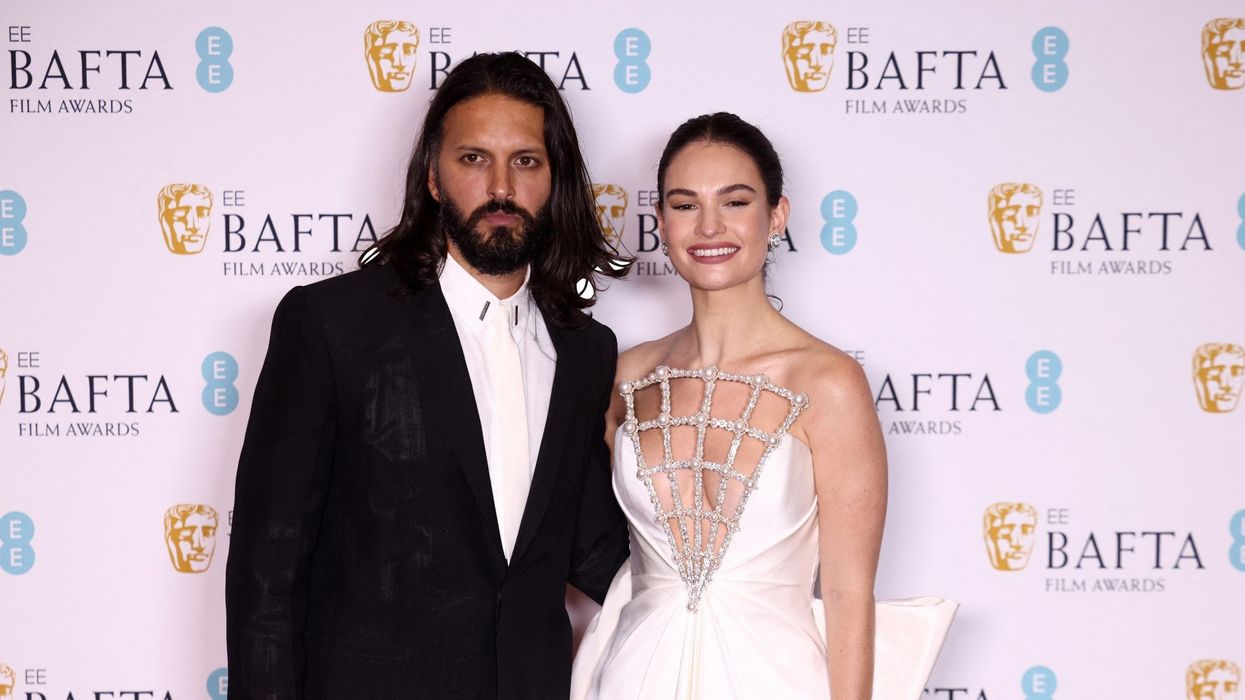LONDON-BORN actor Shazad Latif stressed the importance of representation in mainstream cinema as he took on his first leading role on the big screen in this week’s new release What’s Love Got to Do with It?
Latif said the film, which is centred around the British Pakistani community, is of extra significance to him.
“There’s always a thing of art as activism, but the main thing about that is representation,” he told Eastern Eye. “Anything that can break down a few barriers, it’s opening up space for us and [we are] getting a seat at the table. Any movie that can do that, hopefully, people will respond in a nice way.”
Latif and costar Lily James play Kazim (Kaz) Khan and Zoe Stevenson, respectively, as childhood friends who travel to Pakistan as Kaz navigates his way through an arranged marriage (or ‘assisted marriage’, as the film terms it).
In one scene, Kaz tells Zoe that though they lived next door to each other their whole lives, they actually grew up in different continents – referencing the struggles his character faced as a British Asian.
Asked if it was important for the film to address what it means to be British and Asian, Latif, 34, said: “100 per cent.
“The really interesting thing about the script is when you meet someone, you’re not just taking in their individual personality, you’re taking their whole history and the curiosity they have about each other and their different cultures.
“You rarely see those kinds of conversations between romantic leads. It was really important to explore all of that and not do it in a critical way, but in a truthful way, and ask those questions.”
He added: “I suppose identity is a journey that’s about looking inwards, finding self-love and then translating that to the right communication with others such as your partner or your parents.”
James said: “That’s exactly what this film is saying, that it’s about self-love and self-worth. And once you kind of come to peace with that, then you can really start inviting someone into your life and be a good partner to that person.”
Writer and producer Jemima Khan described the film as her “love letter” to Pakistan where she lived for a decade while she was married to former cricket caption and ex-Pakistan prime minister, Imran Khan.
Jemima said she wanted the film to address the stigma of arranged marriages. What’s Love Got To Do With It? also shows, with the experience of Zoe’s character, that her struggles in looking for a life partner, including with the use of dating apps, are just as complex as Kaz’s search for a wife through arranged marriage.
“I think we did a truthful and informative look at arranged marriages, especially if you know nothing about it. Just step by step, breaking down those stereotypes and showing it’s not some evil manipulative thing,” said Latif, whose father is Pakistani and mother is of English-Scottish heritage.
James said her character was “typical” of many in the West who viewed arranged marriages as an “outdated practice.”
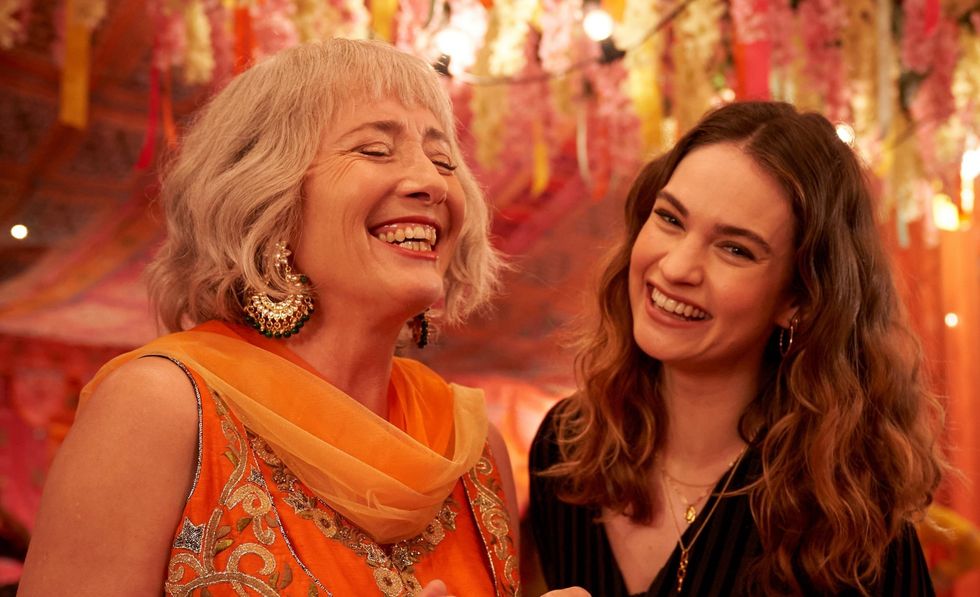
“From her (Zoe’s) point of view as a young woman living in the West, she thinks it takes away choice,” said James.
“But she comes to realise how successful it can be, how there can be an advantage to pragmatism over passion, to putting compatibility over chemistry.”
The 33-year-old revealed the extent to which Jemima went to ensure the film was authentic, saying: “She had so many screenings where she shared it with audiences and got feedback to make sure this was an honest look at arranged marriages, and I felt honoured to be in the film exploring that.
“There’s an amazing, unjudgmental exploration of what arranged and assisted marriages are, and the differences between forced marriage and assisted marriage.”
One stereotypical view tackled in the movie is that south Asian parents are “desperate” for their children to get married. While Kaz’s parents push for their son to get married, Zoe’s mother – played by Oscar winner Emma Thompson – is keen for her daughter to “settle down” too.
“Zoe’s mum applies more pressure than the Asian family,” said James. “She’s doing the exact same thing – trying to push her daughter to date someone she deems worthy, but she’s doing it in a much more pushy way.”
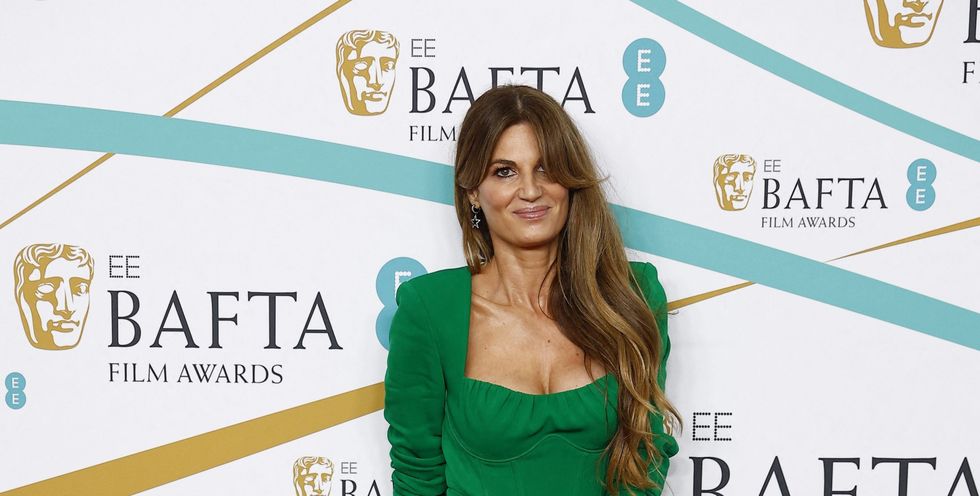
James said making the film gave her an insight into Asian culture. “I got to live in it, to be there. Going to mehndis (henna ceremony) and weddings and learning about the rituals and tradition, saying ‘Assalamu Alaikum’,” she laughed.
“Also, for me, looking at Zoe and having too much choice with dating apps; and on the other side, having someone who knows you best – your parent – choose someone they think could be good for you and what that means – I learned a lot, I really did.”
James is a rising star in Hollywood with leading roles in films such as Cinderella, Mamma Mia! Here We Go Again and Darkest Hour. She was also recently nominated for an Emmy for her portrayal of Pamela Anderson in the critically acclaimed film Pam & Tommy.
Describing James as “one of his best friends” Latif credited her for push-starting his career, which has seen him star in Star Trek: Discovery and Penny Dreadful. They met when James did a play with his former roommate, and the duo also co-starred in the BBC miniseries, The Pursuit of Love.
“Lily is one of my closest friends. She’s like a sister to me,” Latif said. “I read (What’s Love Got to Do with It?) a while back, then it disappeared. Then it suddenly started racing towards being made because Lily wanted to be involved.
“I keep telling Lily I owe her my whole career now, because she’s done a movie with me. And so, I owe Lily James my life,” he laughed.
Latif will soon be seen as Captain Nemo in Nautilus, the Disney+ series that tells the origin story of the hero from 20,000 Leagues Under the Sea.
He revealed that he took to acting after his father died when Latif was 23. “I knew it was a way out of my circumstances. My mother was a single parent and we were very, very poor. It gave me a drive, and since I didn’t really have other options, it meant that I couldn’t fail.”
He spoke of his hope that his success could help break down barriers and inspire the next generation of Asian actors.
“For young people, seeing people like you on screen, that’s the main thing we can do,” Latif said. “It takes a few good years, but it has to happen from the top down. We need producers, writers, directors and companies (to get onboard), not just the actors coming through.
“It has to come from both sides. And I think it’s happening. There’s room for everyone, you know?”
Kapur: Search for intimacy got me
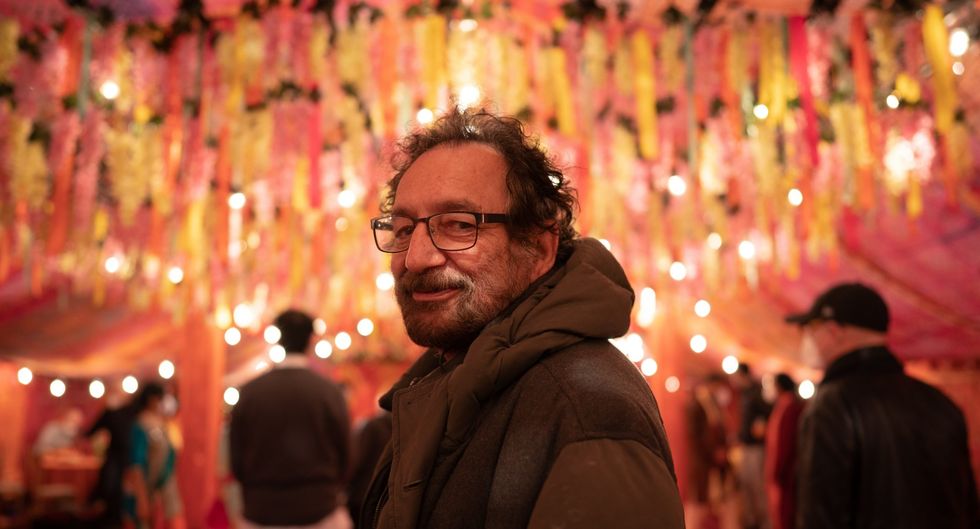
BAFTA-WINNING director Shekhar Kapur said exploring the complexities young people have to deal with in the digital age was one of the reasons he agreed to direct What’s Love Got to Do with It? – his first film in 15 years.
“When Jemima (Khan) sent me the script, I saw in it huge questions that dealt with who we are and where we are in how young people deal with their own sense of existence, their own sense of sexuality,” Kapur told Eastern Eye.
“Looking for intimacy is a fundamental idea of being a human being. I was wondering, if you are constantly on Tinder, obviously you’re looking for intimacy, [but] are you finding intimacy in short bursts of sexuality with different partners? Or is intimacy something that evolves after a while? The search for intimacy is what got me.”
Kapur, 77, is known for helming the Academy Award-winning period drama Elizabeth and its sequel Elizabeth: The Golden Age.
He said his new film was much more than a run-of-the mill romantic comedy. “Even though it’s termed as a romcom, the script went far deeper than that. It explores the idea of family, of commitment, of conflict within who you are.
“I was fascinated by Lily James’s character Zoe. When I first met Lily, I told her I saw this character as stuck in a tumble-dryer, going round and round, trying to find herself.
“People are stuck in anxiety about who they are, where they’re going, what is real, what is not. And a large part of that are the pressures of social media, of advertising. I was getting very intrigued by that.”
The film also gave Kapur a chance to show the beauty of Pakistan, where he was born. “I was born in Lahore so I know the country well. When I did Bandit Queen, I went back to Lahore to do the music with Nusrat Fateh Ali Khan saab. It’s a beautiful, beautiful nation.”
Naughty Boy admits Sawhney joy
PRODUCER Naughty Boy admitted it was a “dream come true” to work with music maestro Nitin Sawhney on the soundtrack of What’s Love Got to Do with It?
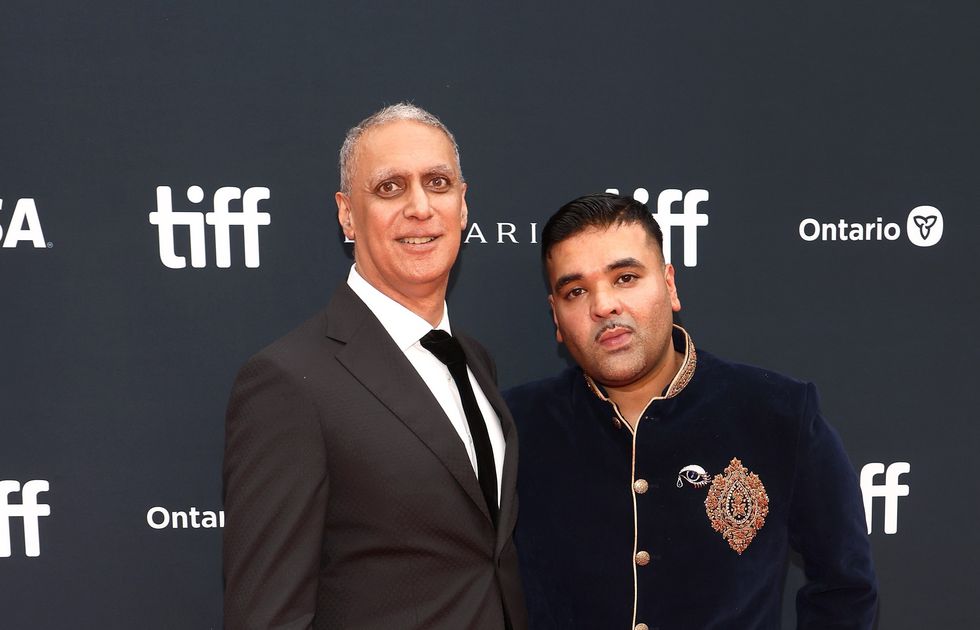
“I’ve been stalking him since about 2007,” he told Eastern Eye. “I’ve been obsessively following Nitin Sawhney since I was in college and to be able to turn that into a collaboration with Nitin was a dream come true.”
Not only did they collaborate on the film’s soundtrack, but they also produced the original song Mahi Sona (the ‘wedding song’). The track has become so popular that it has four different versions – with one featuring legendary Pakistani singer Rahat Fateh Ali Khan, Indian singer Kanika Kapoor, rapper Billy Khan and the film’s lead actress, Lily James.
“We worked specifically on that song – it formed the foundation for the language and the flavour of the film,” said Sawhney.
“It feels special having Rahat Fateh Ali Khan on the song because when I first saw Shekhar’s (Kapur) work it was Bandit Queen, which had Nusrat Fateh Ali Khan (Rahat’s uncle) on the soundtrack.
“Now to be working with Rahat Fateh Ali Khan on a Shekhar Kapur film is very special.”
Naughty Boy added: “Rahat Fateh Ali Khan was the first artist on the song. How everything happened was so natural and we knew we were onto something huge. To be part of the process from the beginning made it even more beautiful.”
Sawhney’s emotional score uses plucked strings and upbeat south Asian-influenced percussion to guide the audience through the highs and lows the characters go through in the film.
“What I tried to do in the first half was make it so it has its own flavour in terms of the film being set in the UK. But when we’re in Pakistan, we use strings quite extensively throughout,” said Sawhney.
“I love working with orchestral strings. It’s a different way in which we’re using strings and I’m glad you say it feels emotional, because that’s what I was trying to do in the score – bring out emotions without undermining all the kind of funny, light moments.
“I think the film as a whole has a really nice atmosphere. It’s very light and it doesn’t feel too intense at any point, but it also is emotionally quite strong and has a lot of feeling to it.”
